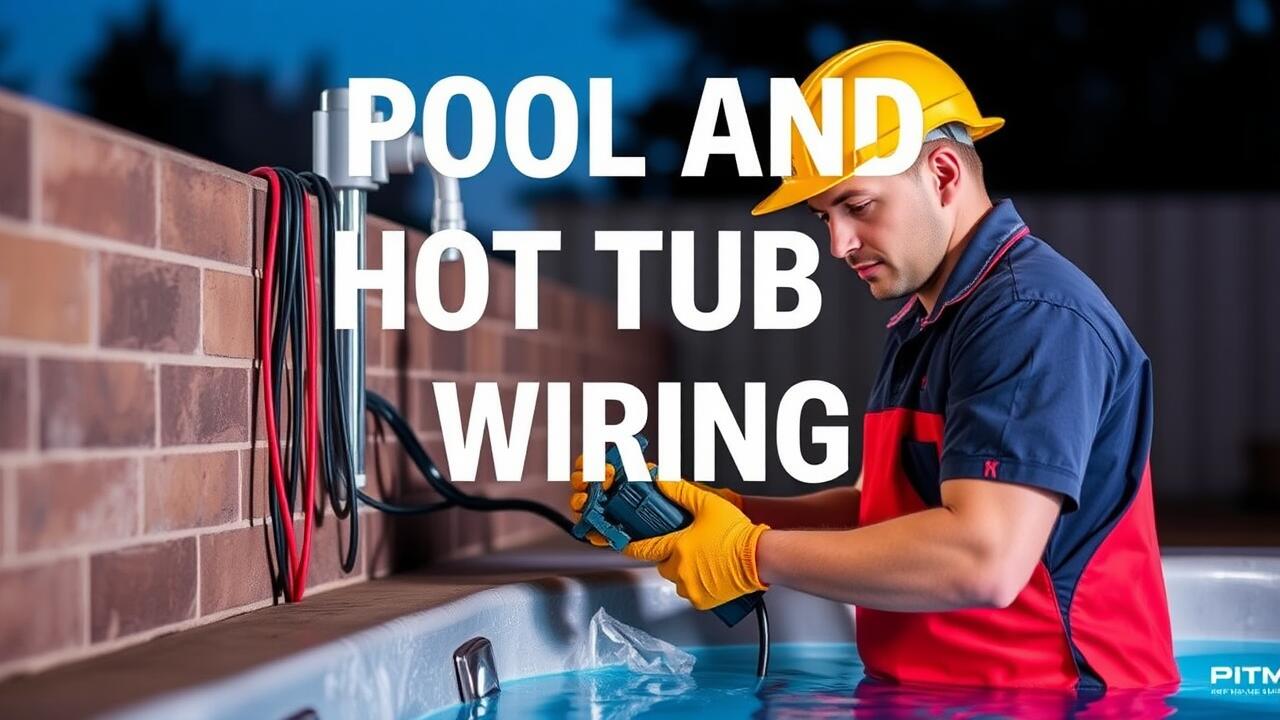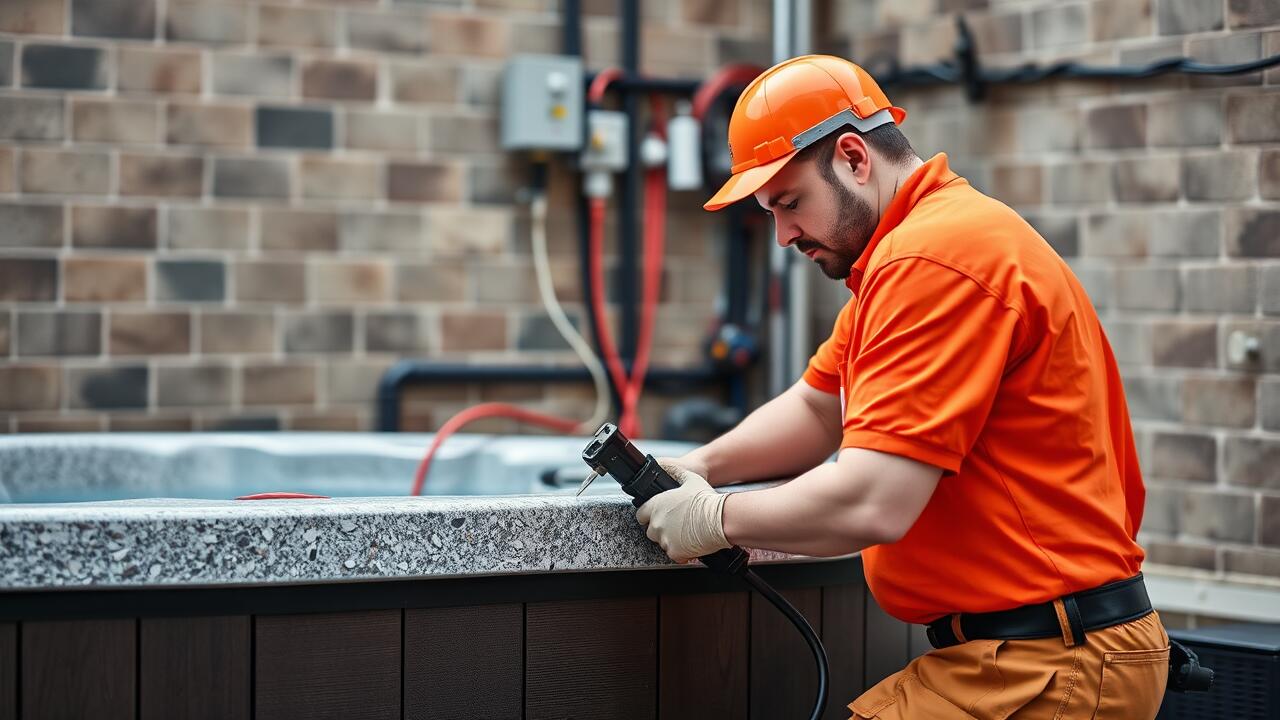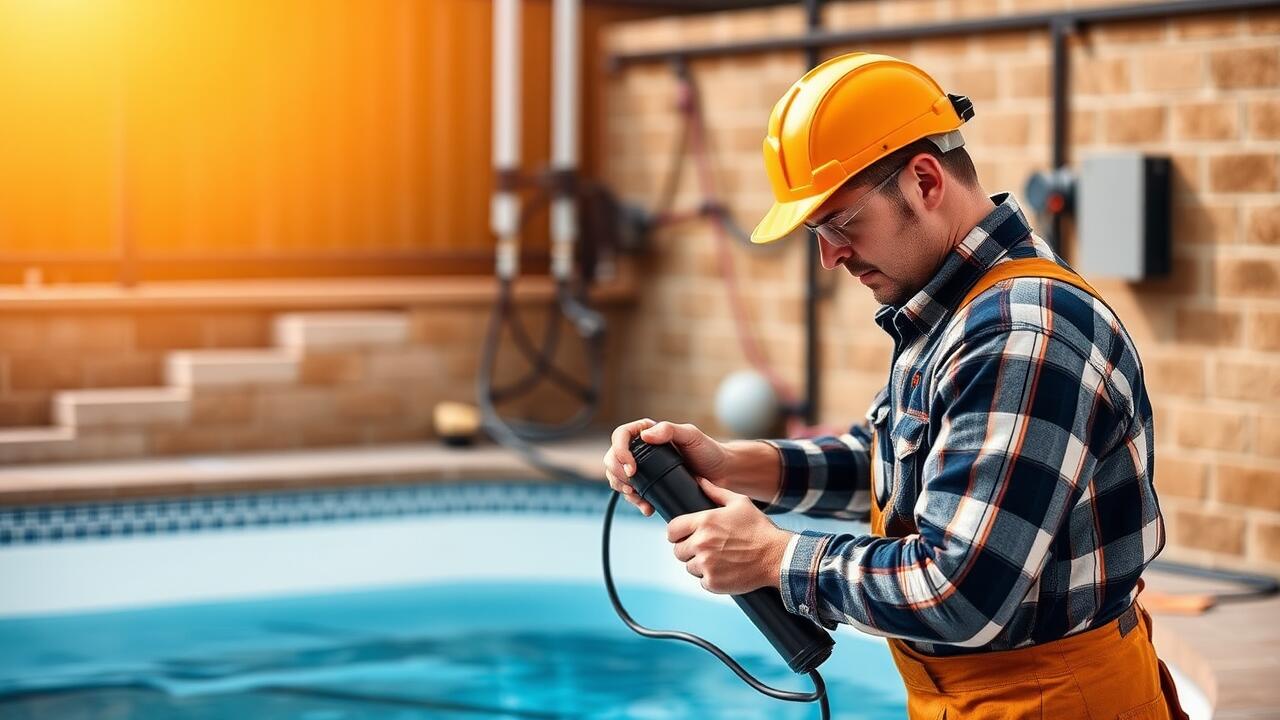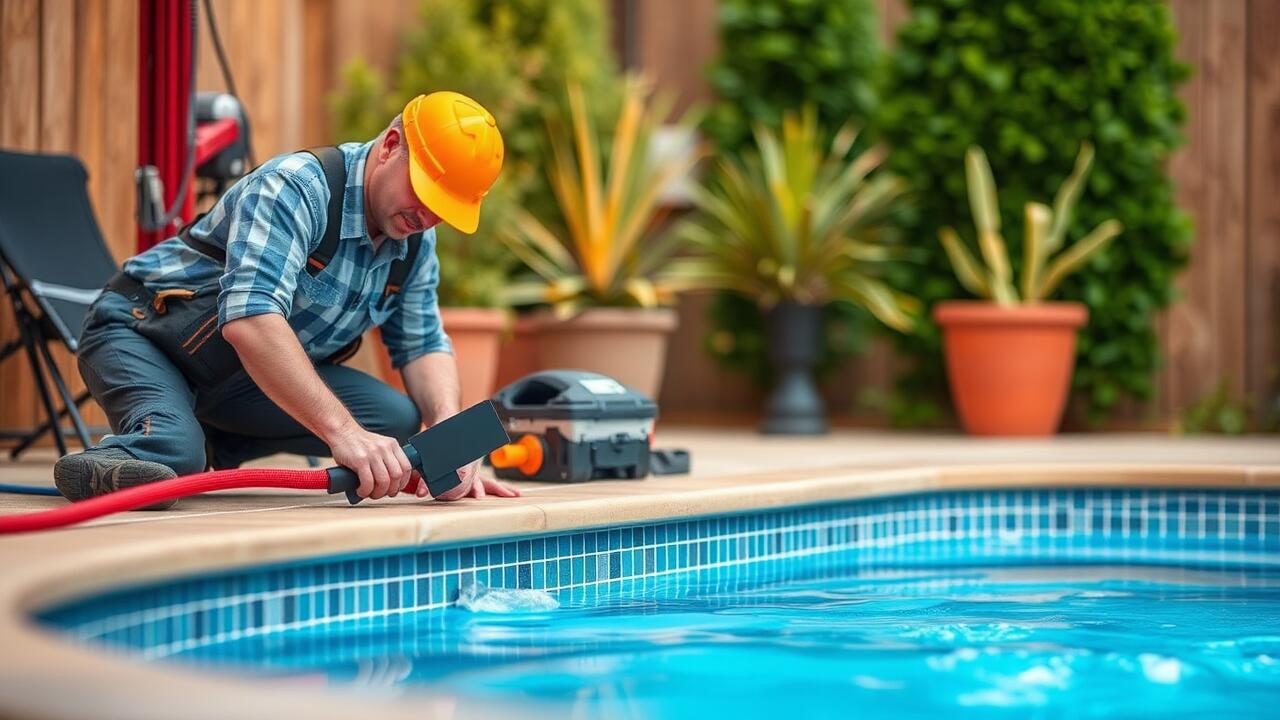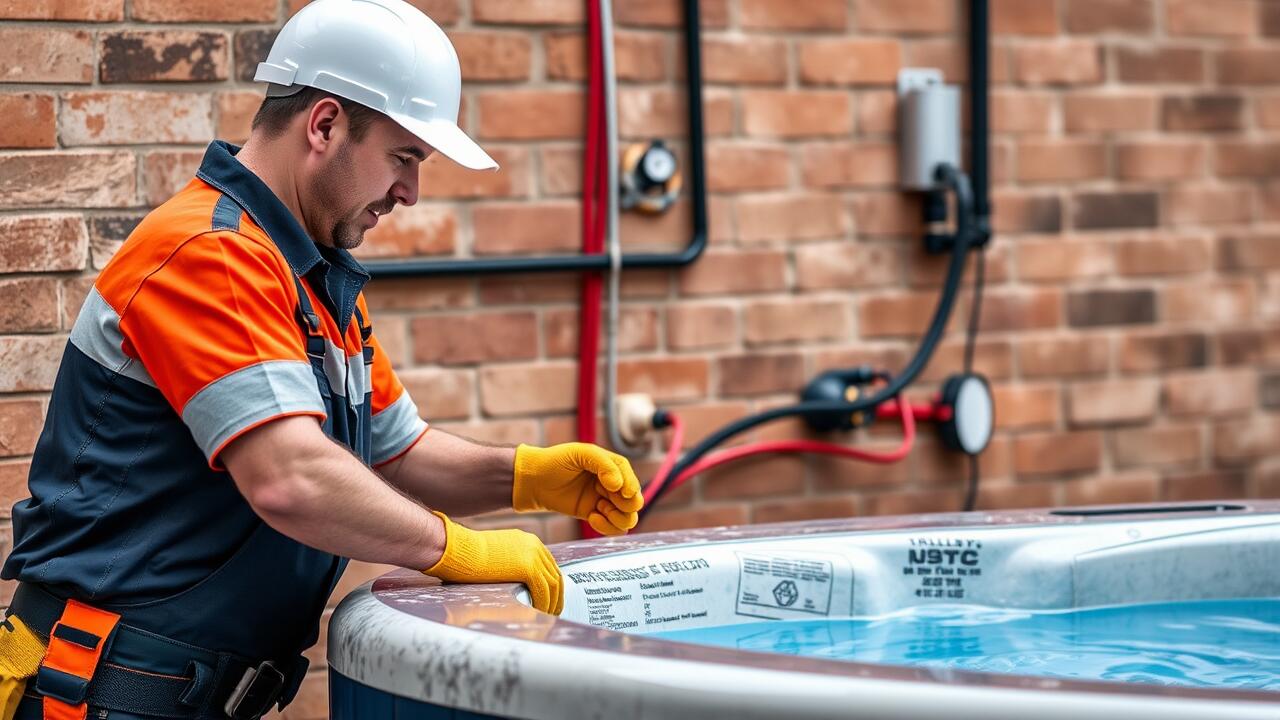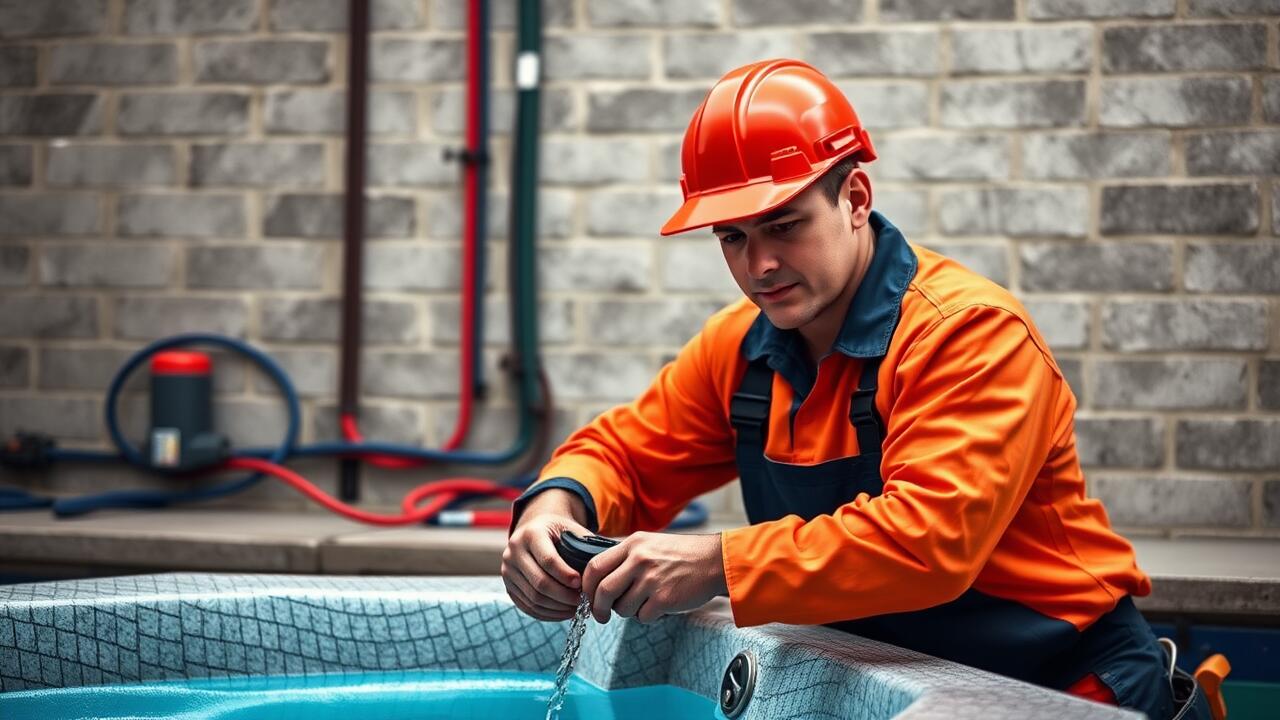
Pool Pump and Filter Electrical Regulations
Proper electrical regulations are essential for pool pump and filter installations to ensure safety and efficiency. According to the National Electrical Code (NEC), pumps must be properly wired to accommodate their specific electrical requirements. This involves using the correct wire gauge and ensuring that all connections are secure and meet local codes. In areas like Westchase, Houston, local building regulations may further dictate specific installation practices for pool and hot tub wiring.
Additionally, it's crucial to consider the placement of electrical equipment related to pool operations. All wiring must be adequately protected against the elements, particularly in outdoor settings. Devices such as disconnect switches should be easily accessible, allowing for quick shutdown in emergencies. Following the guidelines for proper pool and hot tub wiring in Westchase, Houston, minimizes risks and ensures a safe swimming environment.
Proper Wiring Techniques for Efficient Operation
Efficient operation of pool pumps and filters significantly depends on proper wiring techniques. Selecting the right wire gauge is essential for minimizing voltage drop and ensuring that the electrical supply meets the manufacturer's specifications. It is critical to follow the NEC guidelines, which outline the appropriate wire sizes based on the amperage requirements of the equipment being used. Additionally, using high-quality materials can enhance durability and performance while reducing the risk of electrical failures.
When focusing on Pool and Hot Tub Wiring in Greenspoint, Houston, attention to detail in installation can greatly affect overall functionality. Dealing with water introduces specific challenges that require clear separation of electrical lines from plumbing fixtures. Properly securing wires and ensuring they are protected against environmental factors is vital. Planning the layout to facilitate easy maintenance also plays a role in ensuring long-term efficiency and safety of the entire system.
GFCI Protection in Pool Installations
Ground Fault Circuit Interrupters (GFCIs) are essential for ensuring electrical safety in pool installations. They are designed to disconnect power when they detect an imbalance in electrical current, which may indicate a ground fault. This protection is crucial in wet environments, such as around pools and hot tubs, where the risk of electric shock is significantly heightened. Compliance with NEC guidelines requires that all outlets and circuits within a designated pool area are equipped with GFCIs to mitigate potential hazards.
In areas such as Greenspoint, Houston, adhering to GFCI requirements is vital to safeguard residents and visitors using pools and hot tubs. Installing GFCI protection involves strategic placement that caters to local climate conditions and potential electrical hazards. Regular maintenance and testing of GFCI devices are recommended to ensure they function correctly, providing an additional measure of safety for all aquatic activities. Proper implementation of GFCI protection not only fulfills legal obligations but also enhances the overall safety of pool environments.
Understanding Ground Fault Circuit Interrupters
Ground Fault Circuit Interrupters (GFCIs) are crucial components in ensuring the safety of electrical systems involved in pool and hot tub installations. These devices monitor the electrical current flowing through a circuit and can detect imbalances that might indicate a fault, such as water intrusion or equipment malfunction. When a discrepancy is detected, the GFCI interrupts the circuit within milliseconds, significantly reducing the risk of electric shock. Understanding GFCI requirements for pool and hot tub wiring is essential for compliance with the National Electrical Code (NEC) and promotes safe usage in residential environments.
In areas like Kingwood, Houston, implementing GFCIs in pool and hot tub wiring is not just recommended but often mandated to protect users from potential hazards. Proper installation and placement of GFCIs in proximity to pool equipment and outlets ensure that safety measures are robust. Electrical professionals must clearly understand the specifications outlined in the NEC to effectively incorporate these devices, making certain that all circuits feeding pool equipment are adequately protected.
Outdoor Receptacles and Equipment
When planning for outdoor receptacles and equipment around pools, it is essential to consider safety and compliance with the NEC guidelines. Outdoor outlets must be weatherproof and designed to resist moisture exposure. All receptacles should be positioned at least 6 feet away from the water's edge to minimize the risk of electrical shocks. This precaution protects users and ensures proper functionality of the electrical systems installed.
Pool and Hot Tub Wiring in Spring Branch West, Houston, requires careful attention to placement and safety measures. Receptacles must be installed in accessible locations to facilitate easy connectivity for pool equipment and maintenance tools. Using GFCI-protected outlets ensures that any potential ground faults are detected and cut off quickly, further enhancing safety. Proper installation also includes securing cables and devices in a manner that prevents damage from environmental factors.
Placement and Safety Considerations
When planning the placement of outdoor receptacles and equipment around pools and hot tubs, it's essential to consider safety standards. The National Electrical Code (NEC) outlines clear specifications to prevent hazards. Receptacles should be located at least 6 feet away from the pool's edge, reducing the risk of accidental electrical shock arising from splashes or water contact. Additionally, any equipment must be installed at an appropriate distance from the pool, ensuring that it is not only accessible but also sheltered from the elements.
For installations like pool lights and pumps, the use of underwater fittings is crucial. These fittings must be designed to protect against moisture intrusion and should comply with ASTM specifications. Furthermore, any wiring associated with these installations needs to be appropriately rated for outdoor use to withstand environmental conditions. Homeowners looking for guidance on Pool and Hot Tub Wiring in Memorial, Houston, should ensure that all work is carried out by qualified professionals familiar with local codes and best practices, reinforcing safe and reliable operation.
FAQS
What does NEC stand for in relation to pool installations?
NEC stands for the National Electrical Code, which provides guidelines and regulations for electrical installations to ensure safety and efficiency in various settings, including pools.
Why is GFCI protection important for pool installations?
GFCI, or Ground Fault Circuit Interrupter protection, is crucial for pool installations because it helps prevent electrical shock hazards by quickly shutting off power when it detects an imbalance in electrical currents.
What are the proper wiring techniques for pool pumps and filters?
Proper wiring techniques for pool pumps and filters include using the correct gauge and type of wire, ensuring connections are secure and waterproof, and following the NEC guidelines for installation and grounding to promote efficient operation and safety.
How should outdoor receptacles be positioned around a pool area?
Outdoor receptacles should be positioned at least 6 feet away from the pool edge and be equipped with weatherproof covers to ensure safety and prevent moisture-related hazards.
What safety considerations should be taken into account when installing pool equipment?
Safety considerations for pool equipment installation include ensuring that all electrical components are properly grounded, using GFCI protection, adhering to NEC guidelines, and ensuring that all wiring is protected from water exposure and physical damage.
